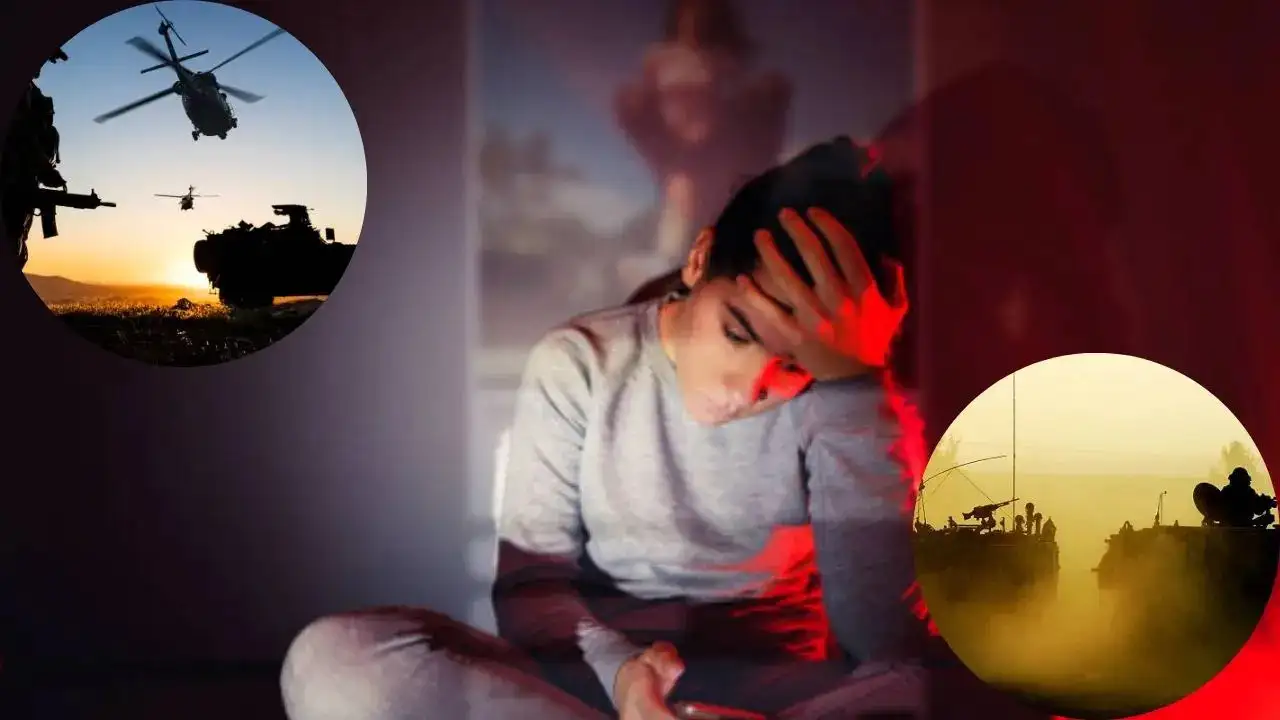
Major crises happened on the intervening night on May 8-9, among the most anxious and triggering times for most people glued to their television sets or mobile phones
The turmoil of war and conflict creates uncertainty and fear, anxiety and anger, sadness and shock, among a range of other emotions—there’s no ‘right’ way to feel. You may either be impacted yourself or concerned about your loved ones who are either on the front lines fighting the enemy or are living in danger zones and are unsure how to help.
Major crises happened on the intervening night of May 8-9, among the most anxious and triggering times for most people glued to their television sets or mobile phones for the latest updates. Pakistani drones trying to attack various cities—including Jammu, Amritsar, Udhampur, and Jaisalmer—were successfully foiled by the Indian air defence. But it does take a toll on everyone’s mental health.
Exposure to uncertainty and fear associated with war and conflicts does have a significant impact on mental well-being, leading to various psychological issues. According to studies, individuals exposed to conflict, even from afar, experience higher rates of:
- Anxiety
- Depression
- PTSD symptoms
- Heart palpitations
- Night sweats
- Social isolation and withdrawal
Experts believe it happens mostly due to uncertainty, especially about the future, which exacerbates anxiety and contributes to feelings of helplessness and loss of control.
Furthermore, watching live updates on the television news and social media can further trigger intolerance of uncertainty, impacting your psychological and mental well-being.
Impact of conflict news on children and the elderly
The uncertainty of war and conflicts creates permanent fear and scare among the most vulnerable groups—the children and the elderly. Mental health experts say prolonged exposure to conflict has a long-term impact on children's mental health, causing them anxiety, insecurity, emotional withdrawal, and even aggression.
For the elderly folks, many of whom are veterans who have served in the armed forces, it can trigger memories of their times when they served and can lead to various health challenges, including PTSD, depression, and substance misuse.
Ways to support mental health during times of war and conflict
In these challenging times, experts recommend prioritising your physical and psychological safety. Try these:
Engage in self-care practices
During the turmoil of conflict, you may not want to get engaged in your everyday tasks and activities you usually do proactively. According to experts, it is completely normal. Do not prioritise your routine, but your mental health. When you feel safe and secure enough to do so, try to bring some of these practices back into your daily routine.
Connect with supportive communities and individuals
If you are feeling anxious and triggered, it is advised to always be around family and friends. Connect with people and communities that support you, either in person or online.
Set boundaries
In times of conflict, it is natural to watch television news or read about the news to stay updated. However, many times it can be triggering, worsening your mental health. And so, it is important to set boundaries. Do not fall for fake or unverified news. Do not share content that can be triggering for others. If you know things, keep them to yourself unless verified by the government.
If news is affecting your mental health, shut off your television and mobile phone notifications and engage in something that you like doing—like cooking, cleaning, listening to music, or reading.
Do meditation and yoga
Meditation helps calm your nerves, reduces stress, improves emotional regulation, and increases focus and clarity. It can also help you cope with the psychological and emotional toll of conflict and even contribute to a more peaceful and harmonious environment.
Get Latest News Live on Times Now along with Breaking News and Top Headlines from Health and around the world.
